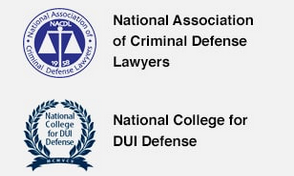Pre-Trial Conferences in Criminal Cases
Lawyer Helping Phoenix Residents Facing Prosecution
During a pretrial conference in a criminal case, the attorneys have an opportunity tell the judge what the status of the case is and whether there are issues that the judge needs to rule upon. Sometimes there is more than one pre-trial conference. Generally, a judge faced with a case that remains unresolved at a pretrial conference will set it for trial. However, your attorney may still be investigating the charges and trying to negotiate a plea deal. If you are concerned about an upcoming pretrial conference in your case, a knowledgeable Phoenix criminal defense attorney may be able to help.
Pre-Trial Criminal Proceedings
An arraignment takes place within ten days of a direct complaint or indictment being filed, except where the defendant has already negotiated a plea agreement or the defendant hasn’t been arrested. Whether you are being accused of child pornography or heroin possession, you’re informed of the charges against you at the arraignment and advised you should have an attorney. You’re asked to enter a plea. A pre-trial conference date will be set.
The pre-trial status conference presents an early opportunity for a defense attorney and prosecutor to resolve a criminal case before going towards trial. After an arraignment, a defendant who has pled not guilty is scheduled for an initial pretrial conference. The issues are narrowed in connection with the case, and there may be a possibility of settling. The initial pre-trial conference is usually held within 45 days after an arraignment.
Pre-Trial Conferences in Criminal Cases
Pre-trial conferences are meetings between the defendant, the prosecutor and the judge. It is critical to have legal representation. The conference may involve a consideration of evidence. The prosecutor must provide items like police reports and surveillance footage to your attorney. For example, if there is video footage of you holding someone up at a cash register while robbing a store, this footage might be provided at the pre-trial conference. You will be entitled to review the complaint and all the evidence the prosecutor plans to use at trial. Additionally, your attorney will let the court know what needs to be done in order to prepare a defense. In addition to talking about the facts and legal issues, the attorneys will talk to the judge about discovery that needs to be done.
Defendants may have different choices to make at the pretrial conference in a criminal case. Attorneys may try to negotiate a plea deal, but a prosecutor isn’t required to offer a plea. A defendant can also maintain a not guilty plea and ask to go to trial. For example, if you are not guilty and the evidence against you is very weak, or can been made weak through motions to suppress, it may be appropriate to try to go to trial.
Your attorney must discuss with you a plea that’s offered, including any benefits or disadvantages of that deal. The plea deal could involve pleading guilty to a lesser charge or receiving a lesser punishment for the original charge. It might involve a reduction in the number of counts, or it could entail alternative sentencing. If the prosecutor does make an offer for a plea deal, the defendant may accept that offer. The judge will still need to approve the settlement. The defendant can reject the prosecutor’s offer, but plead no contest or guilty to the charges, which allows each side to request the sentence it would prefer.
Motions During a Pretrial Conference
In addition to discussing a plea deal, motions may be filed during pre-trial conferences in criminal cases. Sometimes these are motions to compel depositions, motions to dismiss or motions to suppress evidence based on how it was obtained. The police must respect your constitutional rights in conducting searches and seizures or interrogations. If the police did not have probable cause to search your home, for example, but cocaine was found in your home, it may be appropriate to file a motion to suppress the evidence of drugs. A case can be won or lost on a motion to suppress critical evidence.
Consult a Seasoned Criminal Defense Attorney in Phoenix
If you are facing criminal charges, it is important to get an experienced criminal defense attorney on your side. James E. Novak is a former prosecutor who provides strong defenses to clients anywhere in the Phoenix area, including Mesa, Gilbert, Chandler, Scottsdale, and Maricopa County. Contact him at (480) 413-1499 or via our online form.






















